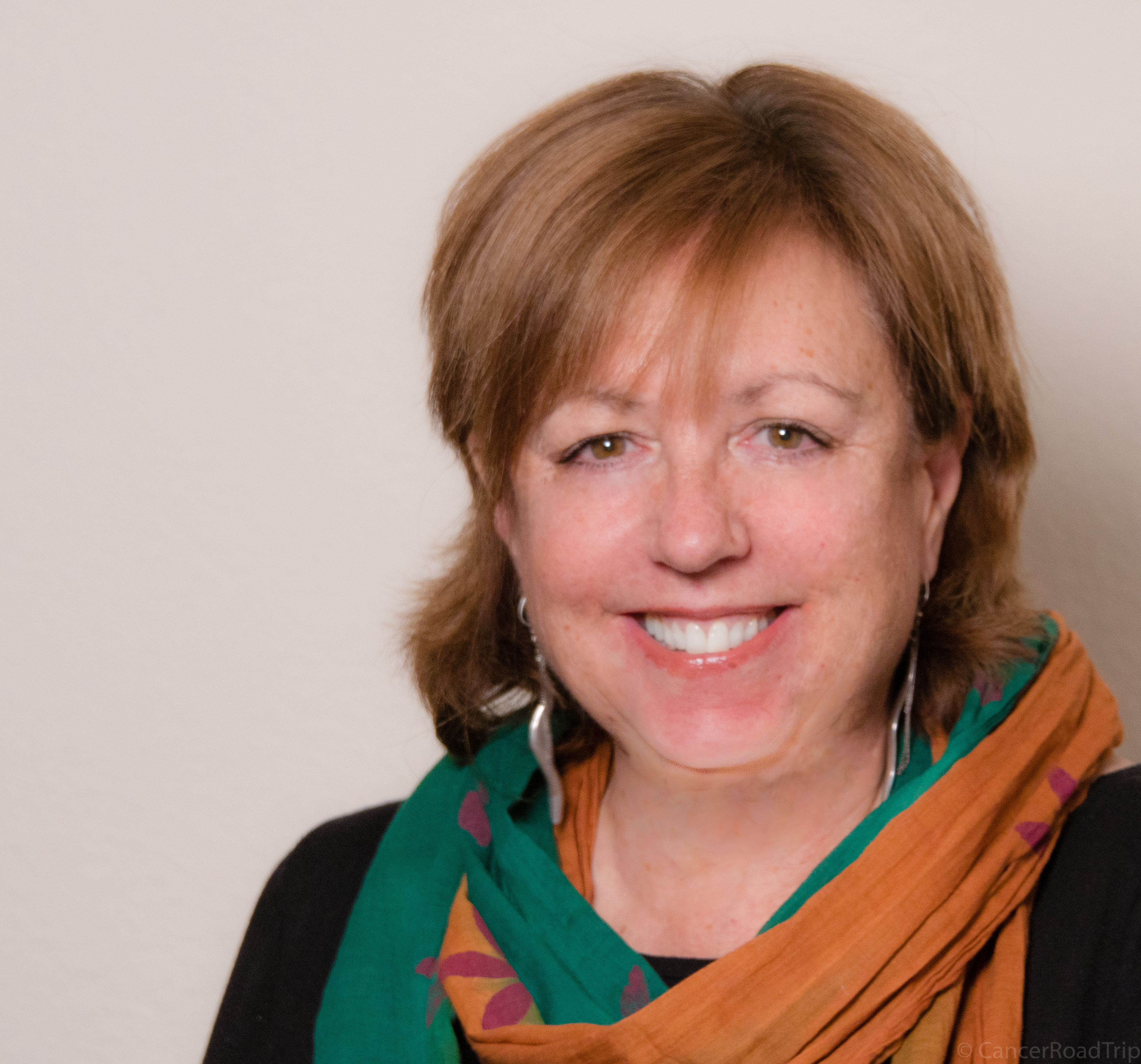Grief and the holidays sadly go hand in hand for many of us. Memories and loses coincide just when we are supposed to be happiest.
Kristyn Lohoff, who lost her husband to cancer, shares some of her strategies for this time of year.
***

The holidays can be a difficult time.
When the holiday season arrives many people find themselves busy planning family gatherings, preparing meals, wrapping gifts, baking cookies, and attending different holiday programs. For people who are living with grief from the loss of a loved one, the holidays can become an overwhelming time. I have learned a lot about how to survive the holidays while grieving.
Grief and The Holidays
I lost my husband in October of 2017, and the first holiday season without him came quickly. Just two months later I was faced with how to celebrate without him. I actually lost seven family members in 26 months, with my husband’s death being the final one. Two other losses were my mother and father-in-law. They had always come to our home over the holidays and that first year without them left my house feeling especially empty.
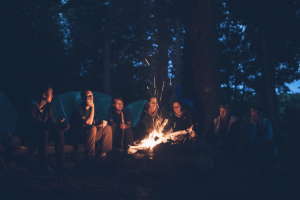
We always gathered around a bonfire
Our tradition of a family gathering with an evening bonfire and a gift exchange was something that I had no motivation to do that first year, but it was something that was very important to all of my children. I found a way to get through that first holiday while grieving.
Surviving the holidays while grieving was so emotionally difficult for me, that I needed two days to recover and be able to get out of bed once again. In spite of this, I felt that the first holiday season was a victory! Here are seven things that I have learned because of my own experiences
Allow Yourself to Feel Without Guilt
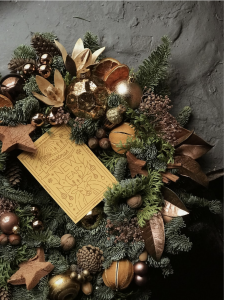
A New Year will bring a new life, different from what you’d imagined.
The holidays are an emotional time. It is Ok if you start to cry, even if you are in line at the grocery store!
You are missing someone special.
Your new life is now very different from what you were used to, it is different from what you envisioned for yourself.
Allow yourself to feel what you are feeling.
Giving yourself permission to let those emotions out will discharge some of the pain so that healing can happen.
Plan Ahead
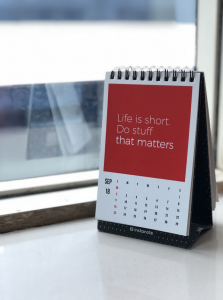
For the first holiday after losing my husband, I was overcome by the intense early grief that I was feeling and there was no way to really plan ahead. Thanks to the help of my adult children, we were able to keep things for our family celebration similar to what they had been in the past. This was very important to them and to my younger daughters.
During my first year as a widow, I learned how to use a bullet journal to help me be prepared and feel less stressed by the responsibilities of daily life.
I used it to plan our second holiday season without my husband. By taking time to reflect about how I wanted to holidays to go, I was able to plan when to do the things that I wanted.
My second holiday season looked very different from my first. I actually took my family on a road trip and we experienced the holiday season in New Orleans, LA while staying in our RV. Being away from home felt good, and that year I didn’t need two days afterwards to recover in bed.
Improvement!
Keep Things Manageable

Lists help us prioritize busy holiday activities
Make a list of all of the things that you feel must be accomplished.
Then, reflect on the things that you truly want to do and the things that you feel you must do.
Do you really need to send holiday cards to every friend or family member you know?
Do you really need to send any?
Let some things go, it’s OK! Trim your old list of things you felt needed to be done down to a new list of only a few “Must Do” items.
It’s OK if you don’t participate in the cookie exchange this year.
It’s OK if you change traditions to make things easier, these changes may make the holiday better for everyone!
Be honest and tell people what you DO want to do for the holidays and what you DO NOT want to do.
Find Time For Yourself
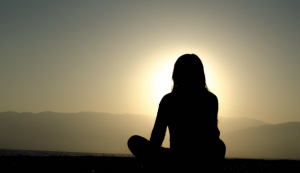
Find time to be alone
Make sure to plan some time for yourself.
Give yourself time to rest. Go for a walk. Listen to music. Take a nap.
Spend time journaling or drawing.
Plan a getaway.
Sit in a coffee shop.
Write a list of ten things that you would like to do for yourself during the holiday season. Write anything that comes to your mind and then select the top three from your list and make arrangements for those things to happen.
If you plan something for just you, especially after the holiday is over, it may give you something to look forward to. This can help you get through some difficult moments.
Find A Way To Honor Your Loved One

Promise kept. John at the Pacific Ocean.
It may be helpful to find a way to honor and include your lost loved one into part of your celebrations.
You could create a memorial table with pictures of those who are not with you anymore.
You could set a spot at the table for your loved one, cook a favorite dish, or light a candle to remember them.
You could create a memorial decoration or ornament in your loved one’s memory.
You may like to set aside a time to visit their gravesite and leave holiday decorations there.
Talk About Your Loved One
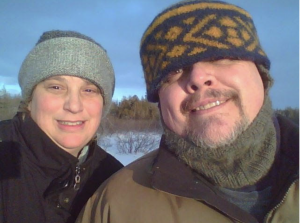
Ready to travel!
It can be helpful to talk about the person who has died as a way to survive the holidays while grieving. Many times people are afraid to bring up the person’s name, but talking about them, saying their name and sharing memories can be very helpful.
By sharing stories over and over, the pain of the loss may lessen. It’s another way to let the pain out and begin to feel joy over time.
Travel and Healing From Grief
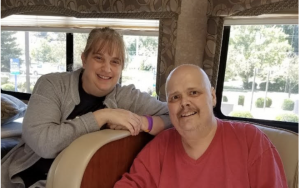
Kristyn and John in their RV
Looking back, it seems that my mother first taught me that travel was a helpful way to deal with grief.
My father died when I was seven, and a couple of months later my mom took our family to DisneyWorld. My parents had been putting money away for this trip for many years, and now, with one less person, it would cost less and she could then afford the trip. Off to DisneyWorld we went!
Over forty years later, I still have vivid memories of that trip and how good it felt to be away from our home where my father had died. For years afterwards, my mother planned trip after trip after trip.
I grew up thinking that she just liked to travel, but once I became a widow myself, I understood the power of travel to heal a grieving soul.
After losing my mother, father-in-law and my husband in a little more than two years, I instinctively began planning a trip that I hoped would bring me and my young daughters some peace. Losses so big would need a monumental trip, and that is exactly what I planned.
Seven months after my husband died I packed up my motorhome and began an epic trip that would log 13,800 miles, included 22 national parks, and provide us with the opportunity to catch up with family and make new friends.
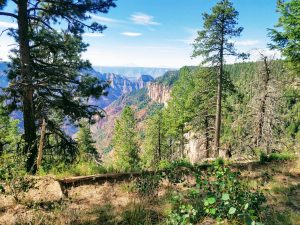
North Rim, Grand Canyon
I created an itinerary of places to go that had been on the bucket list that my husband and I had created together. The trip became a mission for him.
But, as the days went on, I found out that the trip was really about my healing, and the healing of my daughters.
I first noticed this after driving for days from my Wisconsin home, stopping at different places until I had literally run out of road and found myself staring out at the Pacific Ocean in northern California. It was breathtaking.
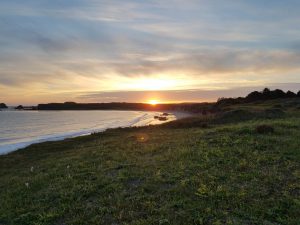
The Pacific Ocean
I sat on the beach watching my girls run around and investigate and just letting my mind wander. I cried, but my soul was also filled with the calm beauty of nature, and I felt a piece of joy seeping back into my life.
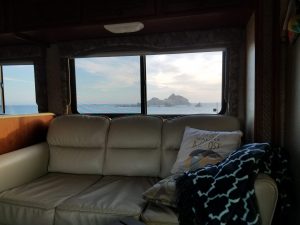
All who wander are not lost: A view from the RV
I did some research and learned about other people who had turned to the powers of nature to heal their broken souls. Theodore Roosevelt lost both his mother and his wife on the same day. Shortly after, he went out to the American West for many months in order to find a way to live with those losses. Nature and travel provided his soul with some comfort, and he later devoted much of his presidency to protecting lands for future generations.
John Muir, from my home state of Wisconsin, went out to California and found the beautiful Beauty in the Yosemite Valley. He later created the Sierra Club and fought for decades so that Yosemite could become one of our first national parks. He later worked to help protect the Grand Canyon and Petrified Forest as national parks.
I have been to over twenty national parks and each time I spend time sitting and letting nature soothe my soul. I enjoy finding out what is special and unique about each park. I let that special thing seep into my body and give me strength to face a new day.
Grief is a marathon.
Whether you are grieving the loss of a loved one, the loss of a pet, the loss of relationship, or the loss of a lifestyle, grief is a daily marathon that we must find the tools around us which will help us to continue moving on.
On my epic RV road trip, I found myself sitting off of a trail along the edge of the north rim of the Grand Canyon without anyone near me.
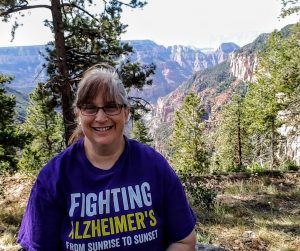
At the rim of the Grand Canyon
I slipped my coffee and stared at the beauty in front of me. And I felt like I could go on with my life.
Travel is healing. Nature is healing. Putting the two together becomes amazingly powerful.
Find your way to survive the holidays while grieving. Safe travels and happy holidays!
Kristyn is a teacher by day and grief and travel expert every other moment of the day. She lives with her two youngest daughters, a dog and a cat and her motorhome affectionately named CeeCee in Northern Wisconsin. She hopes to find a way to live full-time in her RV. You can visit her website and learn more about her adventures in surviving grief by visiting her website at www.ourclassceelife.com
More Reading on Cancer and Travel
Traveling To Heal: 83 Days on the Road
Good Travel Books For The Holidays and All Days
One Cancer Patient’s Ultimate Travel Bucket List
Like This Post? Pin It!
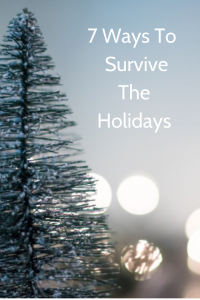
If you’re interested in learning more about photography (or cooking or film or any number of topics) check out MasterClass All-Access Pass for on-line excellence:
 [et_bloom_inline optin_id=”optin_10″]
[et_bloom_inline optin_id=”optin_10″]
What is #CancerRoadTrip and how did it come to be? Read this post to get the backstory!
Follow me on Twitter, Pinterest, Instagram, and at Anti-Cancer Club. Connect with me! I may need a place or two to stay along the way!
Follow my blog with Bloglovin Masterclass YouTube https://www.youtube.com/playlist?list=PL-azJBgG8XSk6z8Ov_mxdczZKkiTyE9cv Blog Lovin’ Follow my blog with Bloglovin


